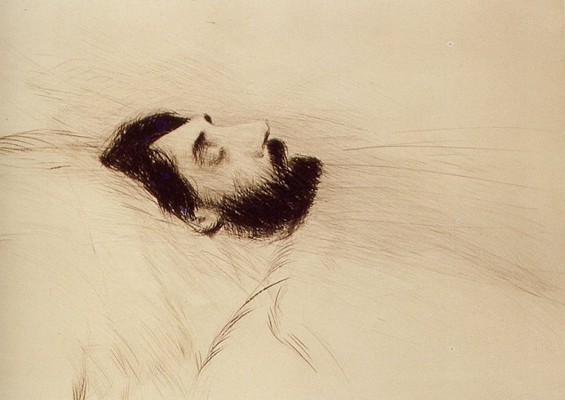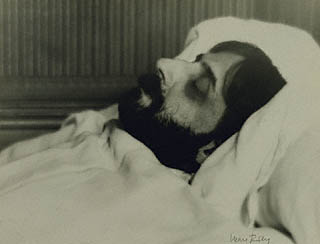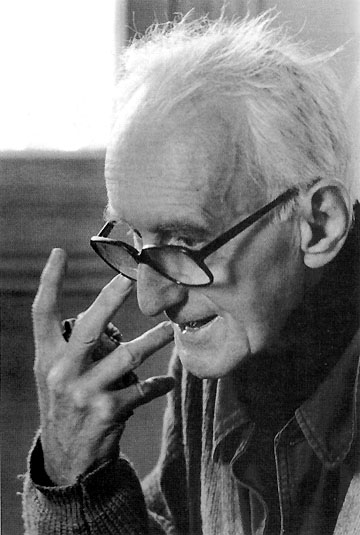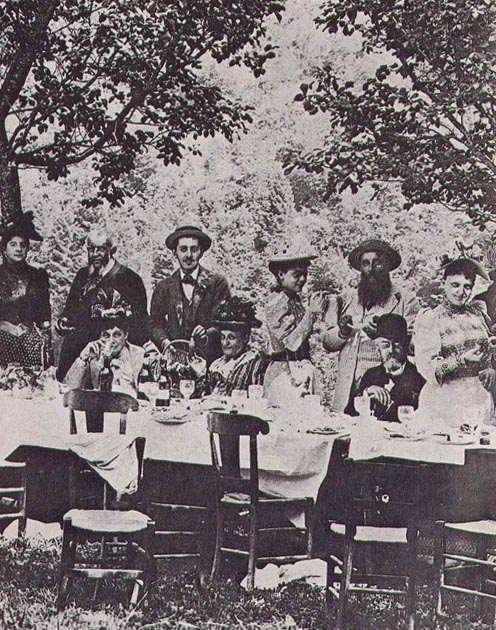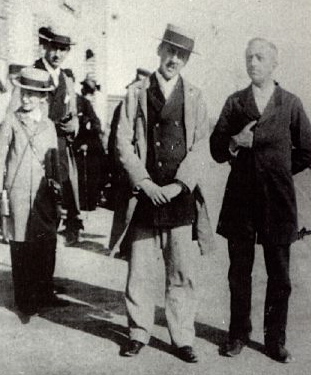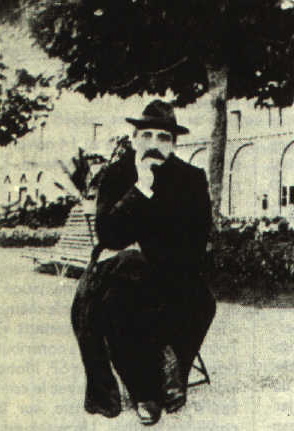These notes pursue the impossible question whether there is consolation in Proust, and this very question arose while reading Benjamin's essay
The Image of Proust from 1929 and an essay* by Jean Améry from 1971 on Proust. Both do not deal with consolation as maintopic, but they adress questions related to consolation or whether Proust is able to touch others rather as a sidenote.
Whereas Améry and Benjamin both were lifelong Proustreaders (albeit Améry did not translate him), both essays have a sort of introductory character and are of somewhat similar length, there is also a distinct difference between Benjamin and Améry which is visible in their style and in their position to the question of consolation. In Benjamin one can find lots of ambiguities towards Proust, no doubt they have their origin in the problems he mentions in his letters. In Améry on the contrary there are no such ambiguities, his essays display a laconic & balanced unimpressedness. Benjamin's attitude towards Proust is shaped to a great extent by the fact that he translated some volumes together with Franz Hessel. In his letters to Hofmannsthal und Max Rychner Benjamin is ambivalent about plans of writing on Proust. On February 23 1926 he writes to Hofmannsthal that partly because of translating Proust he feels he is not able to to get some clarity about the “deep and conflicting impressions” he constantly feels exposed to while reading
In Search of Lost Time. Benjamin's other reason for hesitating to write on Proust is also related to the translation, he feels he is too close to Proust, feels that he lacks clarity, and therefore won't be able to do justice to Proust. This he writes on January 15, 1929 to Rychner while later in the same year his Proustessay appears. Apart from his translation this essay is the only piece by Benjamin that ever published on Proust. Benjamin's notes to this essay which are published in the collected works do not show any signifcant differences or omissions.
Now, what does this question of consolation involve?
In the first place one could wonder why should one need consolation. For isntance when one longs for consolation in times of suffering, during the experience of loneliness, or in absence of luck or happiness. There is an interesting remark by Benjamin who here takes up a thought by Cocteau, namely, that it has to be of utmost concern of everyone who reads Proust: a blind, insane and obessive demand or longing for happiness (
das blinde, unsinnige und besessene Glücksverlangen) of Proust. Benjamin makes an important distinction regarding the question of happiness, he decides between hymnic and elegic happiness and it is not just happiness he speaks, but about a Glückswillen, a strong longing or demand, for happiness, a wanting of and a will for happiness. The hymnic one is about happiness as the singular incomparable unsurpassed mountain of beatitude whereas the second one, the elegic which according to Benjamin also could be called eleatic longing for happiness is about the permanent restauration of an original or a first experience of luck. Can this repetitive endeavour be an expression of not being able to face it, that the happiness, once experienced, now has passed? One could assume so. This would mean that the inability to let go forces one beyond one's strength in order to keep the happiness and forget everything else. Is Proust unable to let go of happiness?
Why is it that Proust cannot comfort. Benjamin in fact does not really look for an explanation, but strongly confirms Rivière who says that Proust approached life without the slightest metaphysical interest, the slightest intention to comfort people. Is this being criticized by Benjamin, this lack of consolation, of being able to touch, to move someone – for Benjamin, and he is not alone in this, says Proust is unable - it is absolutely impossible and alien to Proust, to move his readers. Now, is this so? In his essay Benjamin remains strangely clueless, strangely indecisive, careful, does not judge it, only confirms Rivière. And is this doing justice to Proust? Only looking at the last chapter of the last volume of
In Search of Lost Time,
Time Regained, - and this is a very superficial approach for it does not look for all the other words or at the words of the original language that have consolational connotations nor considers the possibility that something which in this case that what is being seen as having soothing character does not necessarily need to be spoken of or written about in order to unfold its soothing power - it is clear that Proust does not speak often of consolation, but there is one passage that could shed some light on the 'value' of consolation and whether Benjamin was right with his observation. Proust in
Time Regained says:
“Trees,” I thought, “you have nothing more to tell me, my cold heart hears you no more. I am in the midst of Nature, yet it is with boredom that my eyes observe the line which separates your luminous countenance from your shaded trunks. If ever I believed myself a poet I now know that I am not one. Perhaps in this new and barren stage of my life, men may inspire me as Nature no longer can and the years when I might perhaps have been able to sing her beauty will never return.” But in offering myself the consolation that possible observation of humanity might take the place of impossible inspiration, I was conscious that I was but seeking a consolation which I knew was valueless. If really I had the soul of an artist, what pleasure should I not be now experiencing at the sight of that curtain of trees lighted by the setting sun, of those little field-flowers lifting themselves almost to the foot-board of the railway carriage, whose petals I could count and whose colours I should not dare describe as do so many excellent writers, for can one hope to communicate to the reader a pleasure one has not felt?What is being adressed here, valuelessness of a consolation, but a consolation related to what and why is it valueless? Inconsolation in the face af artistic failure. Should it then be an aim to strive for comfort, for consolation? Proust speaks of an impossible inspration that possibly could be replaced with possible observation of humanity and that he was already looking for something that could not be comforting, would be without value, he has a clear idea of this futility, or valueness or the feeling of being barren, emptiness and inability to be able to create something. At the end of his essay Améry adresses the question of emptiness and the value of emptiness. The value of this emptiness, is this a value of consolation? Améry does not say, but it fits to his conviction that Proust is about dissolution of reality rather, not of densification.
Now the in the beginning mentioned problem of the impossibility of consolation
Who still wants and asks for comfort – or consolation - has not yet reached the last stage of inner suffering (
Wer noch getröstet werden kann, wer getröstet werden will, ist noch lange nicht auf der letzten Stufe des inneren Leides.) says Ludwig Hohl, a great Proust reader himself and Celan writes to Franz Wurm: “Vielleicht hilft, das nichts hilft." (
maybe it helps that nothing helps.) It seems there is after all a soothing element in the knowledge of this emptiness, this inconsolation? Can the knowledge or the acknowledgement of such an inconsolation or emptiness already be a consolation itself. Améry calls this emptiness the most important thing that we can – and here I hesitate to use the word learn or experience or get – from Proust and this stands in clear connection with his view that Proust's book is about dissolution of reality rather than densification. We stand here with empty hands says Améry, memory withdraws from us as does the past and the present, the world as such. What remains is an emptiness that is our most precious possession, so Amery. So, and emptiness that is a possession, a possession that consists of nothing – and is that right here, the use of the word nothing- empty Améry said. Hence it is an impossible possession (and how can you possess emptiness, is it not as well always escaping? - how paradoxixal and yet not so.), an impossible comfort or consolation to draw from this, because: Without this possession we would know nothing about the world (and here Améry alludes to Schopenhauer) as will and represention which binds our “I”, but which escapes us just as much as Vinteuil's melody.
But, does Benjamin miss this point entirely? It seems not so. The problem of communication Proust speaks of, how can one communicate something that one has not felt. Yet what Proust here does talk about is this feeling of emptiness and so one could say – when he assumes that one can only communicate what one feels, then it is at least possible to think that this emptiness can be communicated, thus shared. Sharing can mean closeness. When one looks at the other side of Benjamins ambiguities towards Proust, in the notes to his Proust essay he says: "not only time has been regained, but closeness too." (
Nicht nur die Zeit ist wiedergefunden, sondern die Nähe), one can find the old truth confirmed that one broadly can establish a closeness via the arts, via moments of shared feelings of in this case emptiness. In the first place this means readers can be touched by Proust, contrary to what Benjamin said at first. However, this all does not have to mean already the establishment of a consolation, but at least a precious impossible possession?
This has to be explored further ...
* cf.
Améry, Jean; Zugang zu Marcel Proust. Zum 100. Geburtstag des Dichters (10. Juli 1871). In: Merkur 25 (1971)
Benjamin, Walter; Zum Bilde Prousts. in: Gesammelte Schriften Bd. II.1 & II.3, Ffm. 1991
Celan/Wurm; Briefwechsel, Ffm. 2003 [see letter January 9, 1968]
Hohl, Ludwig; Nachnotizen, Ffm. 1986, [aphorism 575]
Moncrieff-translation of Mr. Proust: http://ebooks.adelaide.edu.au/p/proust/marcel/p96t/index.html
